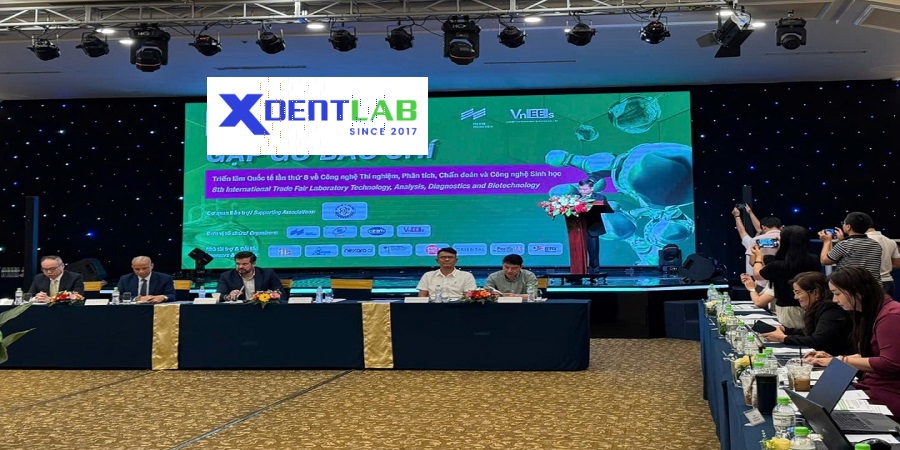
Lab to Lab Services district 1 Ho Chi Minh dentallabvietnam.com are a pivotal component of contemporary scientific and medical research, functioning as a conduit for collaboration among various research entities. In essence, these services facilitate the seamless exchange of samples, data, and expertise between laboratories, thus enhancing the overall efficiency of research operations. With the rising complexity of scientific challenges, the need for interconnected laboratory systems has become increasingly significant, especially in fast-paced environments such as District 1 in Ho Chi Minh City.
Introduction to Lab-to-Lab Services
One of the primary benefits of lab-to-lab services is the streamlining of processes that traditionally involved considerable time and resources. By fostering collaborative partnerships, laboratories can share specialized equipment and technologies, which not only reduces redundancy but also accelerates the pace of discovery. Moreover, the integration of lab-to-lab services allows for a more effective allocation of expertise where it is most needed, thereby optimizing research outcomes.
In District 1, various types of lab-to-lab services are available, catering to the distinct requirements of both academic and private research institutions. These services encompass a range of Vietnam dental lab activities including but not limited to sample sharing, analytical services, and joint research projects. For instance, some laboratories may specialize in high-throughput sequencing, while others might provide advanced data analytics or monitoring of laboratory experiments. This diversity further strengthens collaboration, allowing for innovative approaches to tackle complex problems in the fields of medicine and science.
In conclusion, lab-to-lab services represent a transformative advancement in the way laboratories operate, facilitating enriched collaboration while improving research efficiency. As science continues to move forward, the importance of these services, particularly in urban hubs like District 1, cannot be overstated.
Key Players and Facilities in District 1
District 1 in Ho Chi Minh City is home to a diverse array of laboratories and institutions that provide essential lab-to-lab services. These establishments are equipped with advanced technology and operated by skilled professionals, enabling them to meet a variety of scientific and diagnostic needs. One of the prominent players in the district is the Center for Molecular Biology Research, which specializes in genetic testing and molecular diagnostics. This facility boasts state-of-the-art equipment for conducting DNA sequencing and analysis, which is crucial for research and clinical applications.
Another significant entity in District 1 is the Ho Chi Minh City Institute of Chemical Sciences. This institute is renowned for its capabilities in chemical testing and analysis. It offers comprehensive services that include toxicology assessments and quality control of chemical compounds. The collaboration with local industries ensures that their services remain relevant and cutting-edge, catering to the evolving demands of various sectors.
Diagnostic services are also a key focus within District 1. Several private laboratories, such as the Advanced Diagnostic Laboratory, have emerged as leaders in providing timely and accurate medical testing. They utilize innovative technologies, including automated testing systems, to enhance the efficiency of their operations. These labs often engage in partnerships with hospitals and research institutions to broaden their service offerings and ensure that they maintain the highest standards of quality.
Moreover, collaborative initiatives among these laboratories facilitate the sharing of knowledge and resources that enhance lab-to-lab service efficiency. For instance, joint research ventures allow labs to innovate new methodologies and improve existing processes, thereby elevating the overall performance of scientific endeavors in the area. The synergy created through these partnerships forms a robust ecosystem that supports both traditional and emerging scientific fields, positioning District 1 as a hub for laboratory services in Ho Chi Minh City.
Related articles: Vietnam dental laboratory district 3 Ho Chi Minh
Benefits and Challenges of Lab-to-Lab Services
Lab-to-lab services in District 1, Ho Chi Minh City have emerged as an essential component for research and analysis, providing a platform for enhanced collaboration among scientific institutions. One substantial benefit of these services is the increased access to specialized resources. Facilities that may not possess certain Dental lab vietnam equipment or expertise can now leverage the capabilities of other labs, thereby enriching their research output. This sharing of resources can lead to innovative findings, as researchers draw from a wider array of data and methodologies than they would traditionally have available.
Additionally, lab-to-lab services can significantly reduce turnaround times for various processes, especially when immediate analysis is required. Through efficient partnerships, labs can streamline workflows and expedite the testing phase, minimizing delays that can occur in traditional inter-lab communication. Enhanced research capabilities are also notable, as collaborative projects often lead to comprehensive studies that provide deeper insights into specific fields.
However, the implementation of these services is not without its challenges. Logistical issues frequently arise regarding transportation and the handling of sensitive materials, necessitating established protocols to ensure samples remain viable upon arrival. Data security concerns are paramount, given the increasing prevalence of cyber threats. Laboratories must adopt stringent measures to safeguard proprietary information and sensitive research data during transit and storage.
Furthermore, stringent regulatory compliance is an ongoing challenge in the realm of lab-to-lab services. Adhering to local and international standards can be complex and resource-intensive, especially for smaller institutions that may lack the necessary infrastructure. For instance, a case study from a local biotechnology firm highlights both the potential benefits realized through successful collaborations and the navigational hurdles encountered in meeting regulatory demands.